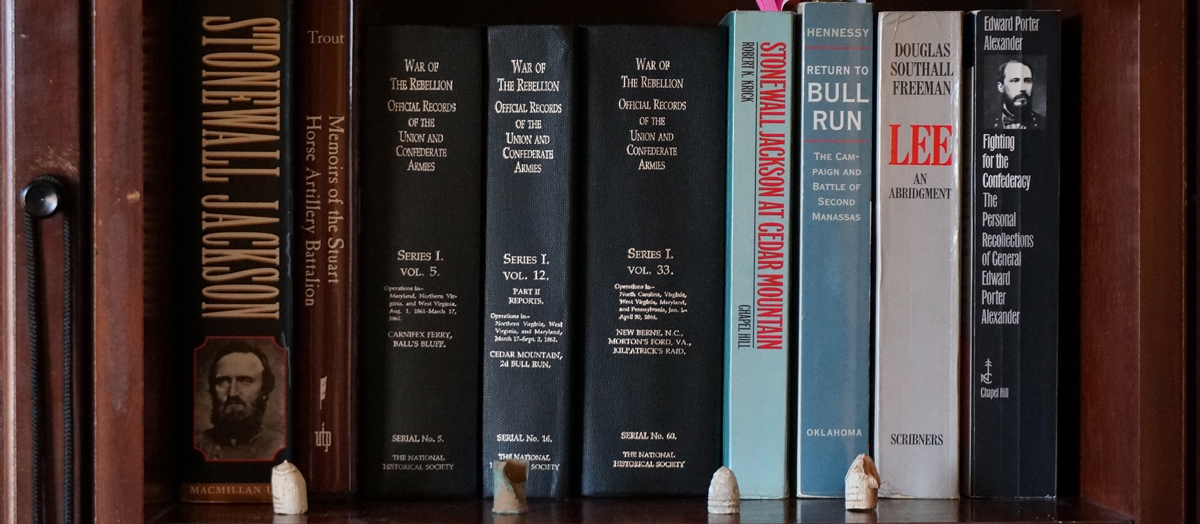No. 35.
Report of Capt. Charles L. Haynes, Twenty-seventh Virginia Infantry.
Camp Near Gordonsville, Va., August 13, 1862.
Sir: I respectfully submit the following as a report of the part my regiment took in the battle of the 9th instant near Ripley’s Station, in Culpeper County, Virginia:
In placing the brigade in line of battle my regiment occupied the extreme right, connecting with the line of the Second Brigade and supported on the left by the Thirty-third Virginia Volunteers. After having formed in line of battle we remained for some time under a heavy fire of shot and shell from the enemy’s artillery. I then, under orders, advanced my regiment in line with the brigade through a dense forest, with heavy undergrowth of brush and much fallen timber, to the fence dividing the woodland from a cleared field. Owing to the density of the forest, the enemy, who was in line of battle directly in front of us, was not discovered until he fired upon us. I then ordered my regiment to advance to the fence and return the fire. This was promptly done and was kept up for some time with such effect that two regiments of the enemy, which immediately confronted us, commenced falling back rapidly in much disorder. However, just as we had succeeded in repelling the enemy in front of us, it was discovered that the regiment which supported us on the right had been driven back, and the enemy were rapidly advancing on our right, cross-firing us and endeavoring to get in our rear. Here the fire was very heavy. I lost 3 men killed and 1 wounded, and not having sufficient force to drive back the enemy and hold my position, the regiment was compelled to fall back. This, on account of thick brush and fallen timber that covered the ground, caused the regiment to scatter considerably. After retreating about 150 yards we met a brigade (which I took to be Branch’s) coming to our support. I fell immediately in rear of this brigade. I attempted to rally my regiment. In this I only partially succeeded. I then proceeded to the main road leading to the battle-field, arriving here just as General Jackson was passing. The detached parts of companies which I had with me here gave a cheer, and at the personal order of General Jackson followed him again to the battle-field. After this the regiment did not appear as a regiment but acted in detachments, some connecting themselves with other regiments, others going in with squads from different regiments, some detailed or ordered back in charge of prisoners, which they had assisted in capturing.
While every member of the regiment who went into the fight, both officers and men, acted nobly and gallantly, still the conspicuous conduct of some of the officers and men after the regiment became broken and was acting in independent squads, deserves to be particularly noticed.
Capt. P. F. Frazer, of Company E, individually took a Yankee captain, a sergeant, and two privates while they were retreating from our forces, and delivered them in person, and without any other guard than himself, to General Jackson.
Lieut. A. M. Edgar, of Company E, Color Sergt. W. H. Powell, Sergt. C. L. Davis, and Dr. J. B. Patton, surgeon’s stewards [sic], only two of the party having fire-arms, one having the colors and the lieutenant his sword, at the instance of Lieutenant-Colonel Gardner went beyond our lines after the fight and captured a Yankee picket of 1 sergeant and 12 privates, all of whom were armed when they were captured. They brought them to the Fourth Virginia Volunteers and delivered them to the guard.
My Regiment went into the battle with less than 130 men rank and file. Loss, 3 killed and 1 wounded.
Very respectfully,
C. L. HAYNES,
Captain, Commanding Twenty-seventh Virginia Regiment.
Capt. J. H. Fulton,
Acting Assistant Adjutant-General.

